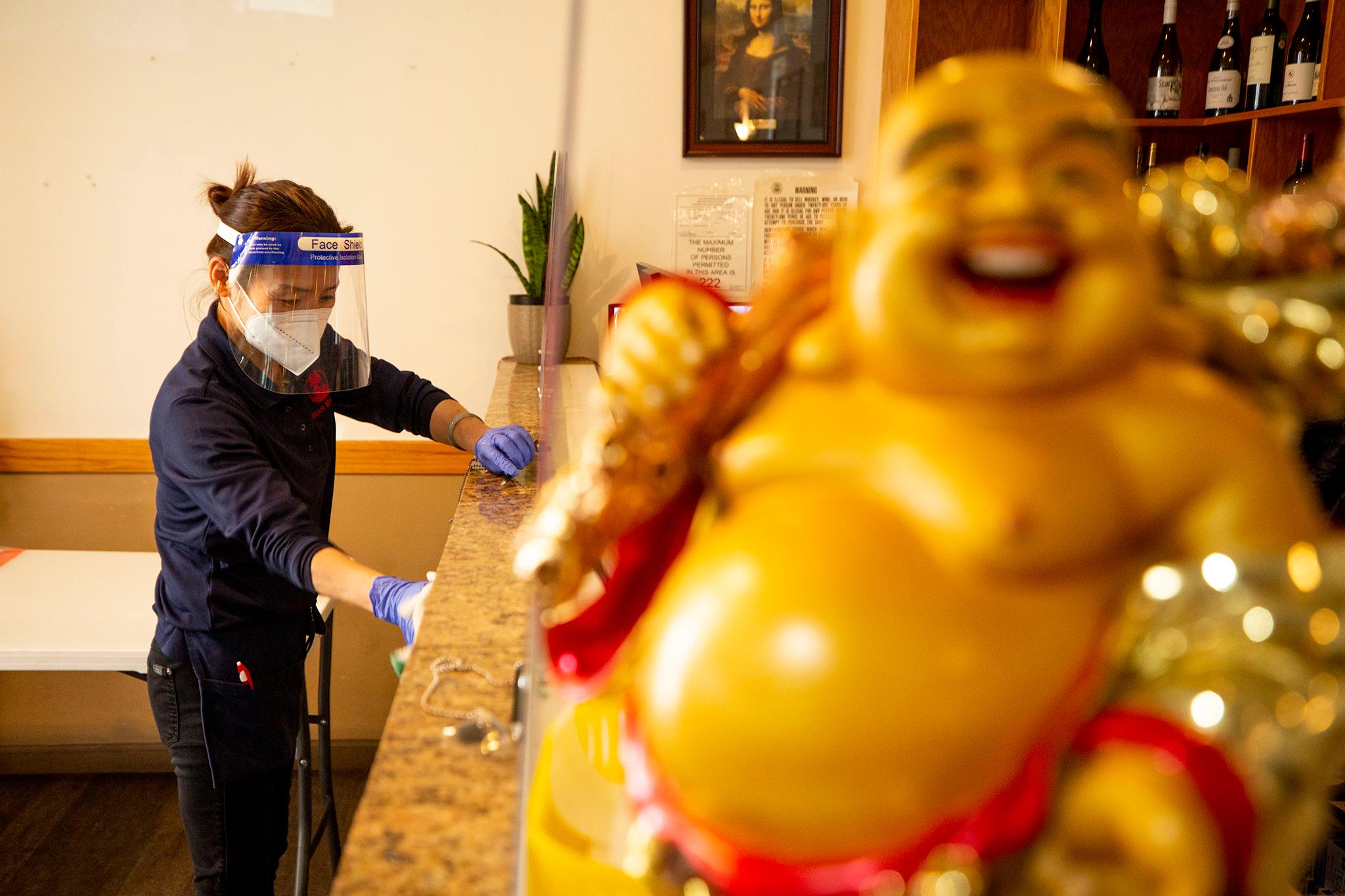Star Kitchen manager Lisa Xu credits loyal customers for helping her restaurant stay afloat during the pandemic.
The dim sum and seafood restaurant on Federal Boulevard has had to cut back in-person dining to comply with the city's public health orders. The restaurant Xo said can seat up to 220 people can only seat up to 50 at the moment. So like every other eatery, her restaurant is far from its pre-pandemic numbers.
"It's definitely very slow, sometimes very slow," Xu said while wearing an N-95 face mask and a face shield. She was serving as a host to both dine-in customers and Uber Eats drivers picking up meals during a recent lunch rush.
Denverite followed up with four businesses we first spoke to in February, when Asian businesses, including restaurants, saw a significant drop in attendance over concerns about the novel coronavirus, which originated in China. Those concerns prompted Gov. Jared Polis to tour some Asian businesses to draw attention to the problem and drum up business. At that point, there were no reported COVID-19 cases in Denver or the state. (Only Ken Do, manager and owner at Little Saigon Market in the Far East Center, declined to comment this week after initially speaking to us in February.)
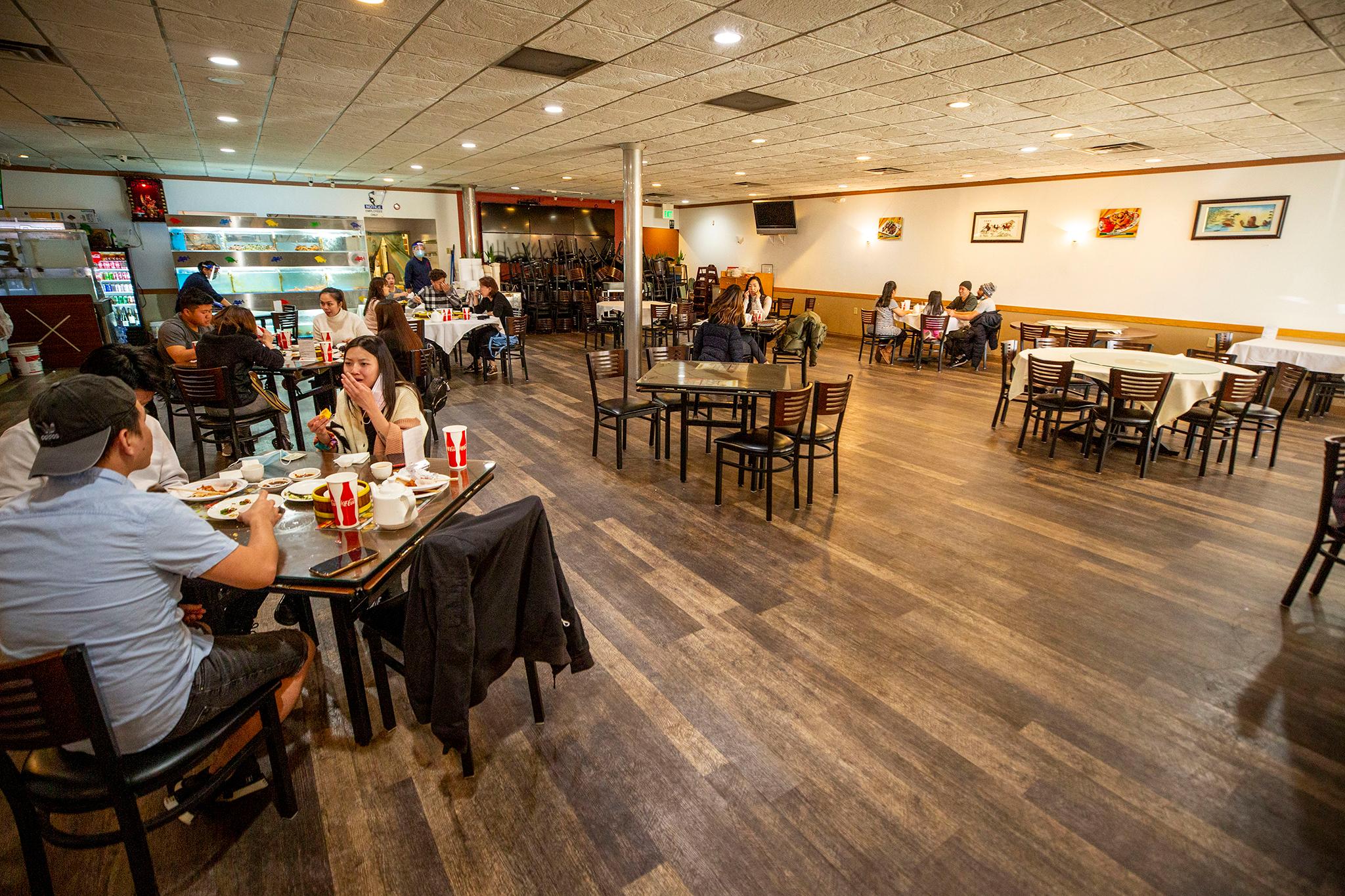
Xu said business is slightly better on the weekends than weekdays, but it's nowhere near normal.
Customers can no longer get that full dim sum experience even if they dine in; Xu said they've eliminated the pushcarts to avoid contact. She's also laid off some staff she couldn't afford to keep paying. She said she still owes rent money from March, April and May. She said she still doesn't see many Chinese customers in her restaurant, which has not closed since the pandemic started.
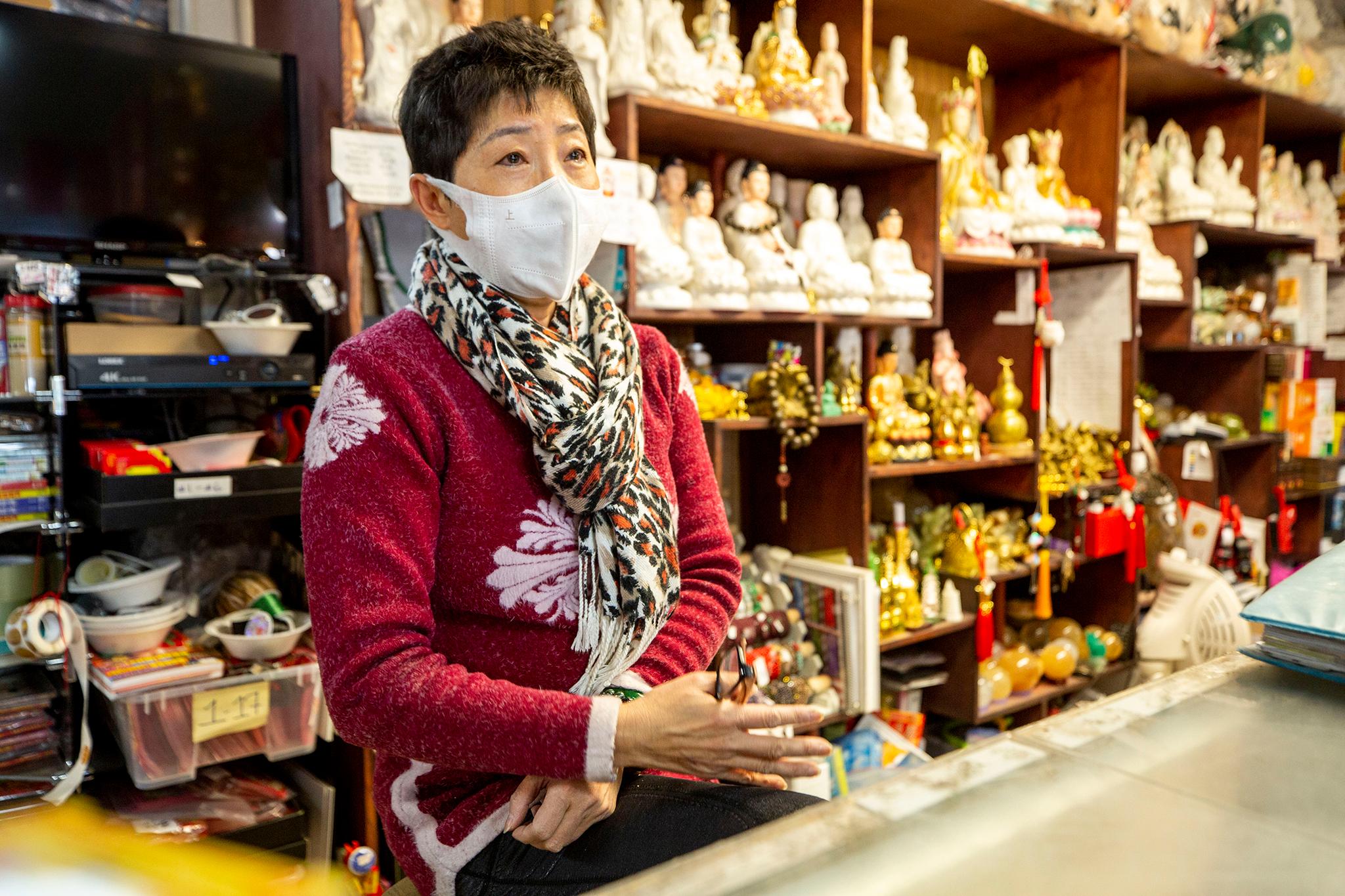
Truong An Gifts owner Fawn Luong fared a lot worse. Over a two-month period earlier this year, she said her sales dropped by 95 percent. The shop didn't shut down completely, instead offering some curbside, by-appointment pickup for items with shorter hours during the lockdown. The shop sells everything from plants to clothing, CDs, coins and jewelry, and big and small ceramic figures -- all stuff she notes people like touching before they buy.
She said most people started reconsidering what they bought when the pandemic-induced recession hit. It meant more people were focused on getting essential stuff, like food, rather than the countless tchotchkes lining her shop.
"(They say) 'I like it,' they spend, but now, when you spend money, you really think about, do I need to spend or not?" Luong said. She's also spending less money stocking up her shop.
Pacific Ocean Marketplace manager Christina Lam said the number of visitors to the marketplace hasn't really changed since February.
The store didn't close at any point, but it did change its hours during the stay-at-home order.
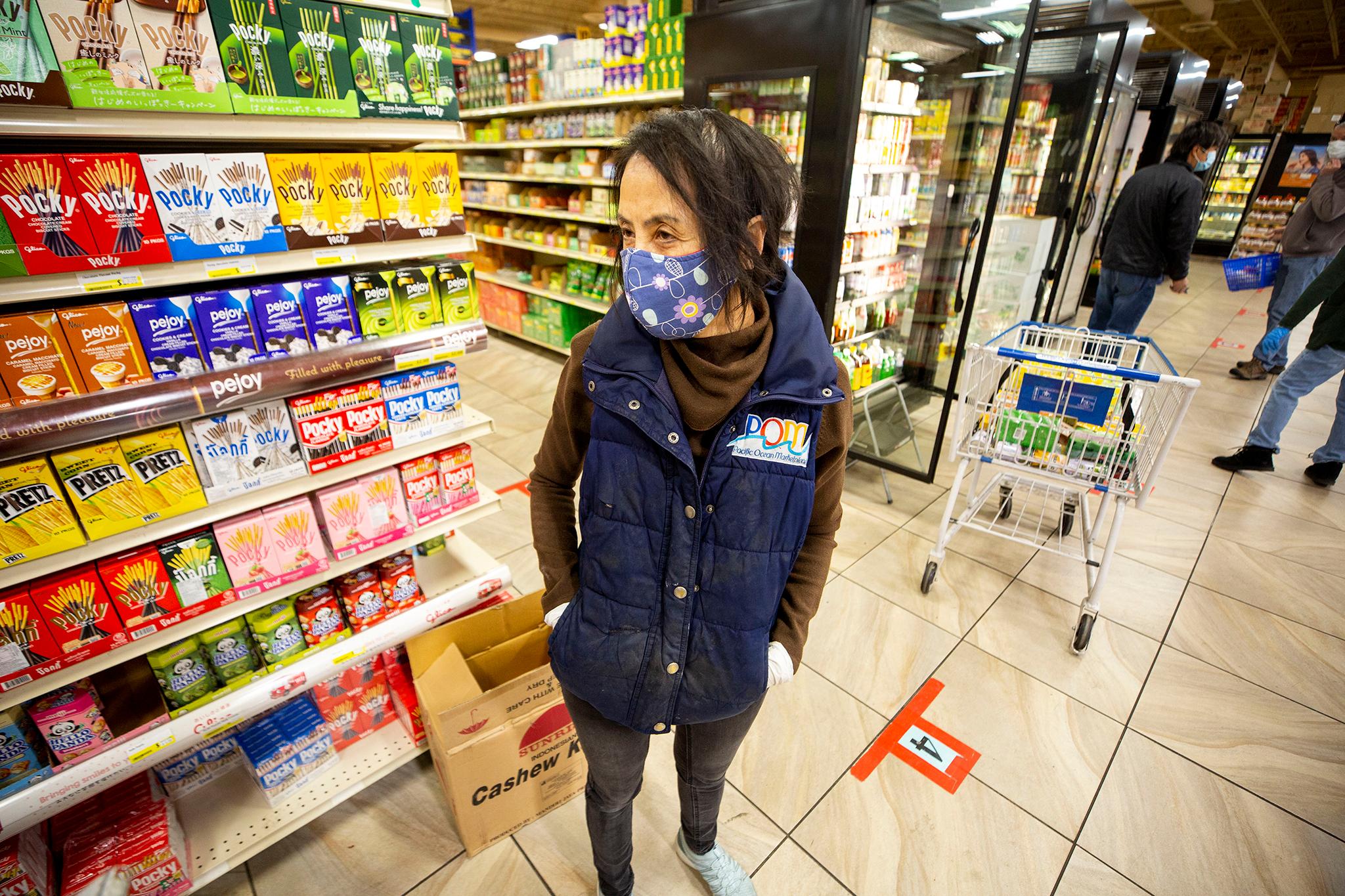
"Business (is) still kind of -- it's OK," Lam said, after stacking some Pocky snacks on a shelf.
She said that there are still concerns among customers, but she hasn't had issues getting enough supplies or keeping things in stock. Earlier this year, as fears about supply increased, Lam said she did have a shortage of rice and noodles; that's not an issue anymore. She thinks most people are visiting her market about once a month instead of making multiple visits.
Lam said one person called to say they couldn't wear a mask due to health reasons, which the city allows. Lam offered to do the shopping for the person, but they declined. Like other businesses, the marketplace has floor signage helping people stay six feet apart and plastic barriers between shoppers and cashiers.
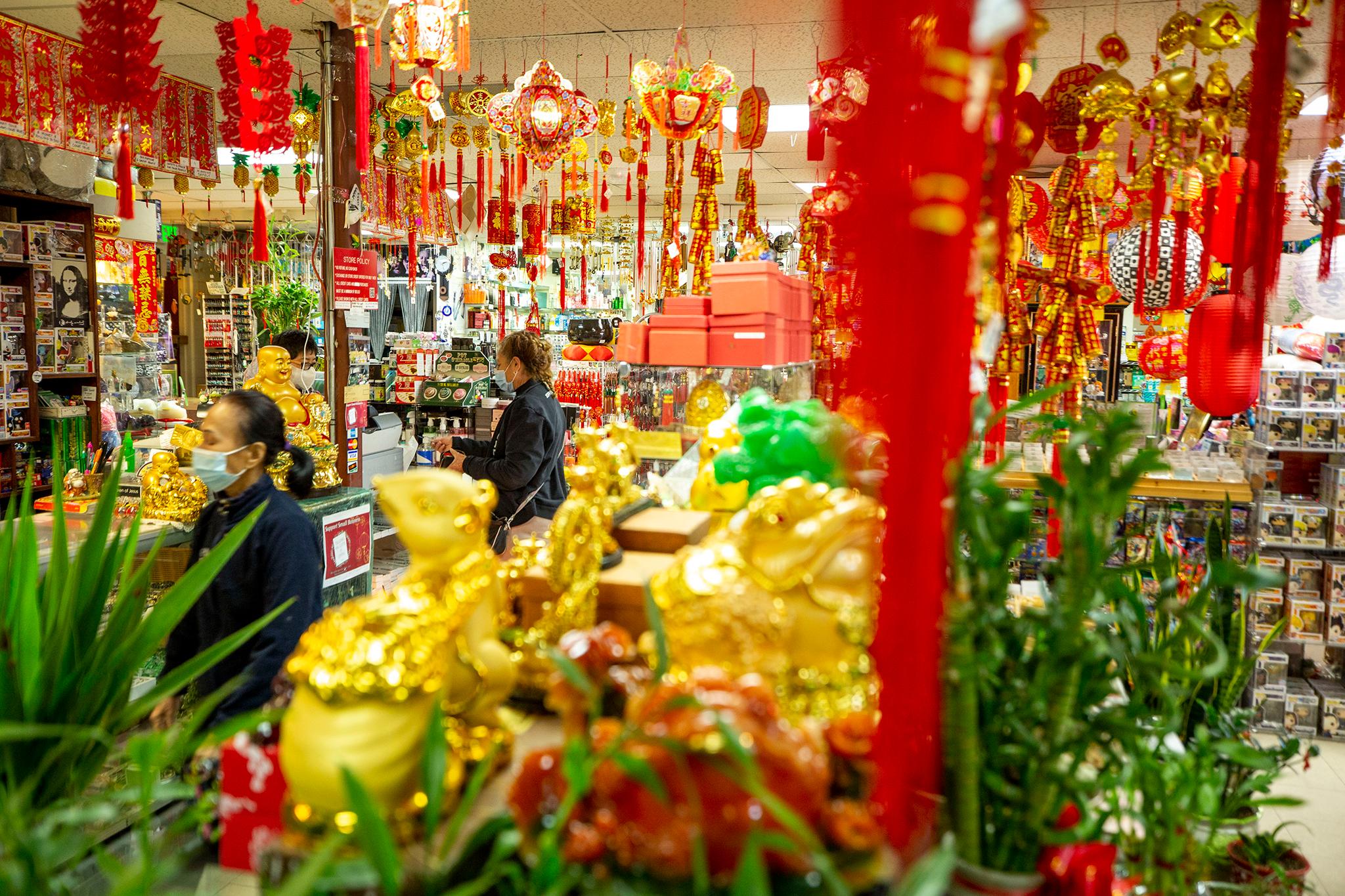
Lam and Luong said most people follow the city's face covering mandate. There have been a few angry customers, including one person who yelled at Luong, telling her they wouldn't return. Even as she retold the story, Luong remained calm.
"(It's) important how you treat people," Luong said. "People feel friendly, they want (to) come back."

